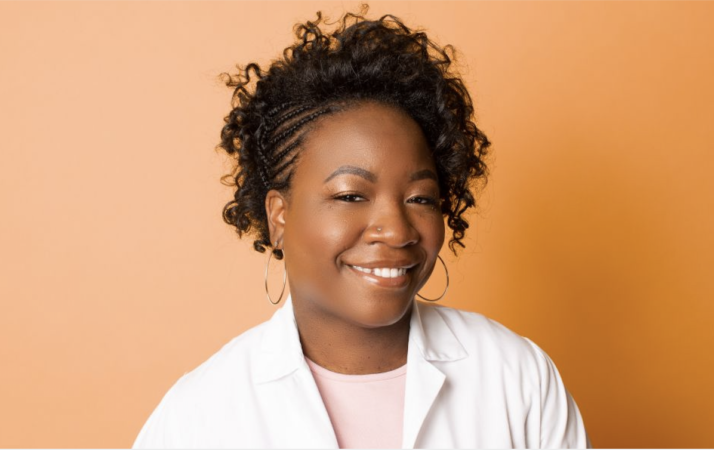When Dr. Arabia Mollette was five-years-old, she knew she wanted to be a doctor — she just wasn’t sure what type of doctor she wanted to be. But then, life threw the Bronx native some curveballs.
“Growing up in the Bronx, I was surrounded by trauma and tragedy,” she told AfroTech. “When I was 17-years-old, I became a teen mom — then I lost my baby boy at just four months. Then, just six years later, my sister was killed in a shooting. Those sorts of things change you, for certain, but they also gave me my life purpose.”
As a part of her purpose, Dr. Mollette became an Emergency Medicine Resident Physician at Newark Beth Israel Medical Center. She practices and teaches in New York City and in various countries in the Caribbean and Africa. She also travels the world delivering keynote speeches with timely messages.
These days, thanks to the pandemic — which landed Dr. Arabia Mollette on the front page of the New York Daily News wearing her scrubs and a concerned look on her face — her focus has become a bit more concentrated.
“With the way, I was trained in Cuba, I approach the disease very differently than most,” she said. “In the United States, the mind and the body are separate entities. But elsewhere, the two are interconnected, and there’s a holistic approach to health to take. When you bear that in mind, my approach to COVID-19 — and all diseases — will also be holistic.”
While “holistic health” is often erroneously believed to merely be an “alternative” therapy — one with quasi-Eastern origins and/or questionable medical & scientific validity — it’s actually an approach to health that takes into account the mind, the body, and the spirit. In other words, it’s not just about making sure your body doesn’t exhibit physical symptoms of illness — it’s also about making sure that the sum total of your mind, body, and spirit are in top form.
And Dr. Arabia Mollette also says that the holistic approach to health also means incorporating a patient’s culture into their care.
“No matter if the person’s culture is from Africa, or the Caribbean, or Europe, understanding who they are and where they come from is essential to proper care,” she said. “There are certain things that some people will be more apt to discuss than other things, and that too is a cultural factor. So, sometimes, being a doctor means listening to what a patient is not saying, not just what he or she is saying.”
Of course, Dr. Mollette is well aware of the disparity between proper health care — and information — and cultural considerations. For a variety of reasons — not all of which are invalid, given America’s sordid history with its treatment of Black people — there’s misinformation, disinformation, and mistrust running rampant about health and medical care in the Black community.
But for Dr. Arabia Mollette, the easiest way to overcome that disparity is not only through education but through an increased presence of Black doctors in the United States.
“First, and foremost, the media needs to do a better job and stop spreading misinformation,” she said. “Here in the United States, we have a severe problem with medical misinformation and disinformation. And people have different reasons for doing that — not the least of which are financial in nature. More than that, too, we need people that look like us on the other side of the operating table. We need to see people that look like us so we can help ourselves because nobody else is going to do it for us.”
Editorial note: Portions of this interview have been edited & condensed for clarity.


